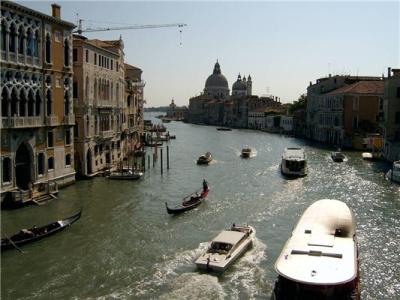Research led by the University of Southampton and its Venetian co-workers has shown that there is 10 times more rapid increase in the sea surface temperature (SST) in the coastal regions when compared to the global average of 0.13° per decade.
 Grand Canal Venice
Grand Canal Venice
Researchers consider this to be a part of the urban heat island effect’s outcome. This process implies that the regions that are encountered with rapid industrial and urban expansion generate massive quantities of heat, where the area will become warmer than its surroundings.
A presentation was recently delivered by Professor Carl Amos of University of Southampton’s Ocean and Earth Sciences, during the Estuarine & Coastal Sciences Association’s Research & Management of Transitional Waters international symposium, in Lithuania.
The world’s coastal zone accommodates 18 % of the overall global land mass and up to 1.6 B of worldwide individuals are found to live in these regions. The coastal population density is thrice more than the global average. With consistent increase in trade and infrastructure at the coasts, the population has been predicted to have 30 % increase by 2025. According to the research, human activity is responsible for direct warming up of adjacent coastal waters within coastal regions of high urban development. Human activity leads to more global warming than green house gases at the coastal zones.
Each year, Venice is visited by 22 M tourists. With a source of income throughout the year, the economy continues to rely on the city, thereby sustaining its status as one of the world’s most desirable destinations. This Venice-based research by Southampton researchers shows the tension that exists between environmental consequences and economic benefits of tourism. Examination of seawater temperature trends in the Venice Lagoon linked to tourism shows 10x more increase during the winter months than that predicted by the IPCC worldwide.
Fishing industry relies on the temperature of the coastal seawater in the Venice Lagoon and this industry is critical to the region’s economy. Increase of SST within the coastal zone minimizes oxygen levels and creates shift in marine fish and associated nursery grounds, leading to catastrophic fish kill phenomena. This research enables forecasting the viability of aquaculture habitats and clam fisheries, significant to tourism.
Source: http://www.southampton.ac.uk/